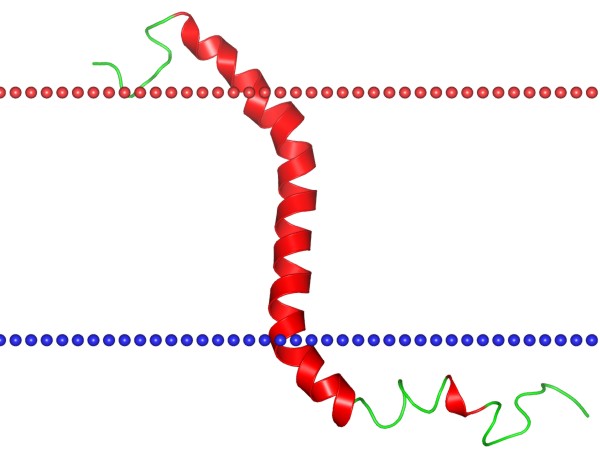Based on the comprehensive membrane protein production platform established through years of experience, scientists from Creative Biostructure can offer custom Mempro™ single-helix ATPase regulators production services using plant-based expression system.
It is well-known that single-helix ATPase regulators, a large group of bitopic proteins with alpha-helical transmembrane anchors, can directly regulate ATPases. While alpha-helices and beta-barrels are the main components of the transmembrane domains in transmembrane proteins. Single-helix ATPase regulators can be classified two families: calcium ATPase regulators and FXYD regulators. Calcium ATPase regulators locate in endoplasm reticulum (ER) and regulate calcium homeostasis. Members of calcium ATPase regulators family include phospholamban, sarcolipin and cytoplasmic helix. FXYD regulators locate in the plasma membrane of eukaryo, members of FXYD regulators family are tissue-specific modulators of Na, K-ATPase. FXYD1 mainly increases the apparent affinity for intracellular Na+ of Na, K-ATPase. FXYD2 and FXYD4 can oppositely regulate the apparent affinity for Na+ of Na, K-ATPase.
 Figure 1. The structural model of Na,K-ATPase regulatory protein FXYD4. (OPM Database)
Figure 1. The structural model of Na,K-ATPase regulatory protein FXYD4. (OPM Database)
Our Mempro™ membrane protein production platform based on plant system holds significant advantages, such as low endotoxin, low protease activity, and animal-free. Animal-free recombinant membrane proteins are particularly crucial for customers concerned with experimental variables caused by trace animal components or mammalian pathogens. Most importantly, membrane proteins expressed by our plant system are free of animal components, serum, endotoxins and antibiotics as well as human or animal infectious agents or other endogenous mammalian contamination.
Creative Biostructure can offer membrane protein production services based on various types of plants, such as Nicotiana benthamiana (tobacco), Medicago rativa (alfalfa), Arabidopsis thaliana (A. thaliana), potato, maize, barley and lettuce. We can provide two different strategies for recombinant membrane protein production in plants: transient expression and stable transformation.
Key features of Mempro™ plant-based membrane production platform:
- Cost-effective
- Easy storage and distribution
- Environment friendly (plants are cultivated in greenhouses)
- Free of infectious or toxic contaminants
- High yield
With the Mempro™ plant-based protein production platform, Creative Biostructure is capable of expressing, isolating, purifying and crystallizing single-helix ATPase regulators to facilitate the study of their structural and biological functions. We can overcome the common difficulties encountered in cell-based expression system, such as misfolding, aggregation, inactivity, high endotoxin, poor stability and solubility, etc.
Creative Biostructure can also provide Mempro™ plant-based virus-like particles (VLPs) production services, Mempro™ animal-free recombinant protein production services and Mempro™ membrane protein production services. Please feel free to contact us for a detailed quote.
References:
A. Wiktorek-Smagur, et al. (2012). Green way of biomedicine – how to force plants to produce new important proteins. Transgenic Plants-Advances and Limitations, Chapter 3. doi: 10.5772/1409.
D. H. MacLennan and E. G. Kranias. (2003) Phospholamban: a crucial regulator of cardiac contractility. Nat. Rev. Mol. Cell Biol., 4(7): 566-77.
F. Junge, et al. (2008) Large-scale production of functional membrane proteins. Cellular Mol. Life Sci., 65 (11): 1729-1755.
K. Geering (2005). Function of FXYD proteins, regulators of Na, K-ATPase. J. Bioenerg. Biomembr., 37(6): 387-92.
